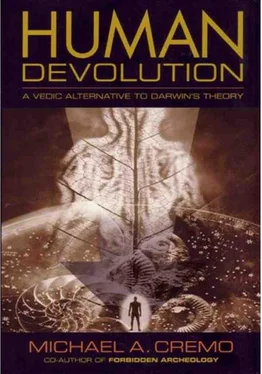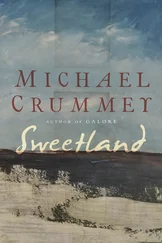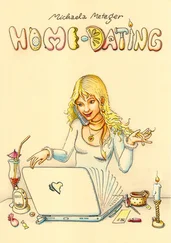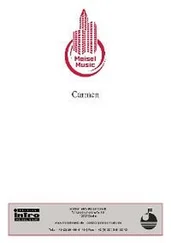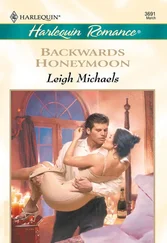Michael Cremo - Human Devolution - A Vedic Alternative To Darwin's Theory
Здесь есть возможность читать онлайн «Michael Cremo - Human Devolution - A Vedic Alternative To Darwin's Theory» весь текст электронной книги совершенно бесплатно (целиком полную версию без сокращений). В некоторых случаях можно слушать аудио, скачать через торрент в формате fb2 и присутствует краткое содержание. Год выпуска: 2003, ISBN: 2003, Издательство: Torchlight Publishing, Жанр: Старинная литература, на английском языке. Описание произведения, (предисловие) а так же отзывы посетителей доступны на портале библиотеки ЛибКат.
- Название:Human Devolution: A Vedic Alternative To Darwin's Theory
- Автор:
- Издательство:Torchlight Publishing
- Жанр:
- Год:2003
- ISBN:9780892133345
- Рейтинг книги:4 / 5. Голосов: 1
-
Избранное:Добавить в избранное
- Отзывы:
-
Ваша оценка:
- 80
- 1
- 2
- 3
- 4
- 5
Human Devolution: A Vedic Alternative To Darwin's Theory: краткое содержание, описание и аннотация
Предлагаем к чтению аннотацию, описание, краткое содержание или предисловие (зависит от того, что написал сам автор книги «Human Devolution: A Vedic Alternative To Darwin's Theory»). Если вы не нашли необходимую информацию о книге — напишите в комментариях, мы постараемся отыскать её.
Human Devolution: A Vedic Alternative To Darwin's Theory — читать онлайн бесплатно полную книгу (весь текст) целиком
Ниже представлен текст книги, разбитый по страницам. Система сохранения места последней прочитанной страницы, позволяет с удобством читать онлайн бесплатно книгу «Human Devolution: A Vedic Alternative To Darwin's Theory», без необходимости каждый раз заново искать на чём Вы остановились. Поставьте закладку, и сможете в любой момент перейти на страницу, на которой закончили чтение.
Интервал:
Закладка:
Séances at miss Douglas’s
In 1869, Robert Chambers, author of vestiges of Creation , introduced Wallace to Miss Douglas, a wealthy Scotch lady with an interest in spiritualism. Wallace attended many séances at Miss Douglas’s London residence in South Audley Street. There he met many well connected spiritualists, including Darwin’s relative Hensleigh Wedgwood. Among the most interesting séances were those with Mr. Haxby, a young postal employee described by Wallace as “a remarkable medium for materializations.” Haxby would sit in a small room separated by curtains from a dimly lit drawing room on the first floor.
Wallace (1905 v. 2, pp. 328–329) gave this account of a typical séance with Haxby: “After a few minutes, from between the curtains would appear a tall and stately East Indian figure in white robes, a rich waistband, sandals, and large turban, snowy white and disposed with perfect elegance. Sometimes this figure would walk around the room outside the circle, would lift up a large and very heavy musical box, which he would wind up and then swing round his head with one hand. He would often come to each of us in succession, bow, and allow us to feel his hands and examine his robes. We asked him to stand against the door-post and marked his height, and on one occasion Mr. Hensleigh Wedgwood brought with him a shoe-maker’s measuring-rule, and at our request, Abdullah, as he gave his name, took off a sandal, placed his foot on a chair, and allowed it to be accurately measured with the sliding-rule. After the séance Mr. Haxby removed his boot and had his foot measured by the same rule, when that of the figure was found to be full one inch and a quarter the longer, while in height it was about half a foot taller. A minute or two after Abdullah had retired into the small room, Haxby was found in a trance in his chair, while no trace of the white-robed stranger was to be seen. The door and window of the back room were securely fastened, and often secured with gummed paper, which was found intact.”
The usual skeptical explanation for such manifestations is imposture by the medium or a confederate. In this case, the measurements taken rule out imposture by the medium. And the precautions taken to secure the entrances to the back room make the participation of a confederate somewhat doubtful. On the whole, circumstances point to the genuineness of the materialization.
On one occasion at Miss Douglas’s, the famous Daniel Dunglass Home was the medium and Sir William Crookes, a distinguished physicist, was present. Crookes, later president of the Royal Society and recipient of the Nobel Prize for physics, was conducting his own research into spiritualistic phenomena. Wallace (1905 v. 2, p. 293) noted, however, that “his careful experiments, continued for several years, are to this day ignored or rejected by the bulk of scientific and public opinion as if they had never been made!”
At the séance attended by Wallace, Home was given an accordion. He held it with one hand, under the table around which he and the witnesses sat. Home’s other hand remained on top of the table. On hearing the accordion play, Wallace went under the table to see what was happening: “The room was well lighted, and I distinctly saw Home’s hand holding the instrument, which moved up and down and played a tune without any visible cause. On stating this, he said, ‘Now I will take away my hand’
—which he did; but the instrument went on playing, and I saw a detached hand holding it while Home’s two hands were seen above the table by all present. This was one of the ordinary phenomena, and thousands of persons have witnessed it; and when we consider that Home’s séances almost always took place in private homes at which he was a guest, and with people absolutely above suspicion of collusion with an impostor, and also either in the daytime or in a fully illuminated room, it will be admitted that no form of legerdemain will explain what occurred” (Wallace 1905, v. 2, pp. 286–287).
Darwin Agrees to test a medium
Another scientist who witnessed Home’s mysterious accordion playing was Francis Galton, a cousin of Charles Darwin. At the invitation of Crookes, Galton attended three séances with Home and another medium, Kate Fox. Afterwards, in a letter dated April 19, 1872, Galton wrote enthusiastically to Darwin: “What surprises me is the perfect openness of Miss F. and Home. They let you do whatever you like within certain limits, their limits not interfering with adequate investigation. I really believe the truth of what they allege, that people who come as men of science are usually so disagreeable, opinionated and obstructive and have so little patience, that the seance rarely succeeds with them. It is curious to observe the entire absence of excitement or tension about people at a seance. Familiarity has bred contempt of the strange things witnessed. . . . Crookes, I am sure, so far as is just for me to give an opinion, is thoroughly scientific in his procedure. I am convinced that the affair is no matter of vulgar legerdemain and believe it is well worth going into, on the understanding that a first rate medium (and I hear there are only three such) puts himself at your disposal” (Pearson 1914). Darwin agreed to see Home, giving Galton a letter to send to him. But by that time Home had gone on to Russia and never returned to England (Beloff 1993, pp. 49–50). This is unfortunate. Who knows what would have happened if Darwin had actually met Home? Perhaps he would have joined Wallace in his spiritualism.
The Skeptical Sir David Brewster
Home’s mediumship had long been a matter of controversy among English scientists. Home, born in Scotland, had gone to the United States as a child, returning to England in 1855. At that time, he lived in a London hotel owned by a Mr. Cox in Jermyn Street. In his autobiography, Wallace gives attention to Sir David Brewster’s experiences with Home. Brewster, a noted physicist, attended a séance with Home at Cox’s Hotel and another at Ealing, determined to expose any trickery. After a newspaper gave an account of what happened, Brewster wrote to the editor giving his own testimony: “It is quite true that I saw at Cox’s Hotel, in company with Lord Brougham and at Ealing, in company with Mrs. Trollope, several mechanical effects which I was unable to explain. But although I could not account for all these effects, I never thought of ascribing them to spirits stalking beneath the drapery of the table; and I saw enough to satisfy myself that they could all be produced by human hands and feet, and to prove to others that some of them, at least, had such an origin” (Wallace 1905, v. 2, p. 287).
Here Brewster appears to be saying that the things he observed were produced by trickery. But a Mr. Coleman, who spoke with Brewster shortly after the séance , wrote a letter to the paper giving the following account of their conversation (Wallace 1905, v. 2, p. 288).
“Do you, Sir David, think these things were produced by trick?” “No, certainly not,” Brewster is said to have replied.
“Is it a delusion, think you?” “No; that is out of the question.” “Then what is it?”
“I don’t know; but spirit is the last thing I give in to.”
Brewster replied with a letter of his own. Although he maintained his skeptical attitude, he did give some intriguing descriptions of what happened at Cox’s Hotel: “When all our hands were upon the table noises were heard—rappings in abundance; and, finally, when we rose up, the table actually rose, as appeared to me, from the ground. This result I do not pretend to explain. . . . A small hand-bell to be rung by the spirits, was placed on the ground near my feet. I placed my feet round it in the form of an angle, to catch any intrusive apparatus. The bell did not ring; but when taken across to a place near Mr. Home’s feet, it speedily came across, and placed its handle in my hand” (Wallace 1905, v. 2, pp. 288–289).
Читать дальшеИнтервал:
Закладка:
Похожие книги на «Human Devolution: A Vedic Alternative To Darwin's Theory»
Представляем Вашему вниманию похожие книги на «Human Devolution: A Vedic Alternative To Darwin's Theory» списком для выбора. Мы отобрали схожую по названию и смыслу литературу в надежде предоставить читателям больше вариантов отыскать новые, интересные, ещё непрочитанные произведения.
Обсуждение, отзывы о книге «Human Devolution: A Vedic Alternative To Darwin's Theory» и просто собственные мнения читателей. Оставьте ваши комментарии, напишите, что Вы думаете о произведении, его смысле или главных героях. Укажите что конкретно понравилось, а что нет, и почему Вы так считаете.
